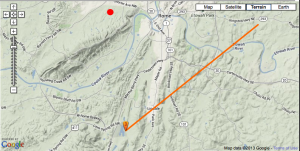So… If you’re current or former law enforcement and read that title, and are ready to pour vituperation down upon my head, I ask you… Just read to the end. If you chose that career because you believed you could honestly do good for others, then you will give this article some consideration before attacking it.
A profession, sayeth Mirriam-Webster, is… Well, yes, the first three things; but also:
-a calling requiring specialized knowledge and often long and intensive academic preparation;
-a principle calling, vocation, or employment;
-the whole body of persons engaged in a calling
It’s the first one that concerns us here. Organizations such as the AMA and ABA identify four characteristics of a profession: 1) A common fund of knowledge 2) Certain standards or qualifications 3) some type of organization, and 4) Standards of conduct.
A Profession is a disciplined group of individuals who adhere to ethical standards and who hold themselves out as, and are accepted by the public, as possessing special knowledge and skills in a widely recognised body of learning derived from research, education and training at a high level, and who are prepared to apply this knowledge and exercise these skills in the interest of others.
It is inherent in the definition of a Profession that a code of ethics governs the activities of each Profession. Such codes require behaviour and practice beyond the personal moral obligations of an individual. They define and demand high standards of behaviour in respect to the services provided to the public and in dealing with professional colleagues. Often these codes are enforced by the Profession and are acknowledged and accepted by the community.
-Australian Council of Professions, 2003
The 1996 Georgia Peace Officers Standards and Training Council’s Peace Officer Reference Text- “P.O.R.T.” (the acronyms get out of hand pretty quickly); the manual you received Day 1 in the academy, mentions this definition, and compares it to Law Enforcement. It decides that “The first two characterizations of a professional are clearly evident in law enforcement. However, the last two, organization and clearly defined standards of conduct, are major deficiencies that must be corrected.” It goes on to say that while there may be national private bodies such as the IACP and international training organizations, they are private organizations and represent their own special interests. “but no national body establishes standards of conduct for the profession to the extent that members of the profession must adhere to such requirements”, the PORT concludes; “It is evident that law enforcement has taken the first steps towards professionalization. It is the responsibility of all in the profession to complete the progress.”
Whelp.
I read those words 25 years ago in my academy class, and remember it sparking a bit of debate between the class and the instructor. So, how are we doing now, in 2021? Do we have A common fund of knowledge, Certain standards or qualifications, Some type of organization, and Standards of conduct?
*Puts on green eyeshade visor and licks tip of pencil* Well, let’s just see.
Some type of organization
Well, yeah. It’s a quasi-military rank structure that falls under one governmental body or another. LE has that.
A common fund of knowledge
One thing Law Enforcement does do is share information. Memos and newsletters and bulletins fly back and forth; from state agencies and the FBI, ATF, DEA/EPIC, Homeland Security… Reams of paper of annual statistics, FOUO/LES/SSI memos, bulletins, and updates. Oh yeah, we share info; all the way down to the rural county Sheriff who posts a bulletin about an urban legend he read about on Facebook. LE folds, staples, mutilates, and collates forests worth of knowledge every year. In my own state, the Georgia Public Safety Training Center (GPSTC, pronounced “gyp-stick”… told you the acronyms were getting out of control) has detailed, cross-referenced and thoroughly annotated lesson plans on every topic that could possibly concern law enforcement. Certain specialties, such as accident investigations and forensics, cloak themselves in a scientific aura that sounds impressive but, upon investigation (and not a few Frye tests), turns out to be more attuned to anecdotal evidence than the scientific method.
But… None of them are uniform nationwide. When I went through the academy, it was 9 weeks. In Georgia, it’s now…
A little over 10 weeks. The average number of hours needed to become a mandated officer nationwide is 547…
A little over 13 weeks. And the curricula? Very, very varied. There is no national standard for training. National training groups exist; but they are all private entities… with their own agendas.
Certain standards or qualifications
Again, even more scattered than the last one… each individual agency decides what they need to have; and most of the time, that decision is made based on “what do we need to have at a minimum to keep us from being sued?” Occasionally, state agencies will mandate certain standards… When I started, you didn’t have to qualify with your weapon or have any training on use of deadly force after the Academy.
This didn’t change until 2006. It wasn’t that many years before I went to the academy that you could work for up to a year as a cop before you had to go to the academy to be certified.
And every state is different.
The only requirements you have to fill to keep your certification in Georgia every year are to 1) attend a 1 hour Use of Deadly Force class 2) pass annual firearms qualification and 3) attend 20 hours of advanced or in-service training. The one thing that gets cops year after year is the 20 hour training requirement. Even though I offered in excess of 1,000 training hours a year as the departmental training officer, I had officers every year didn’t get that 20. But hey, no sweat! Yeah, you lost the powers of arrest on January 2 the following year; but all you have to do is make up the training and sign a waiver; and your powers of arrest were reinstated retro-actively! Now it doesn’t matter who you arrested in the meantime; you’re all good!
And every state is different.
Standards of conduct
You already know what I’m going to say here: And every state is different. But actually, every AGENCY is different. Each agency makes their own Standard Operating Procedures (or Suggested Operating Procedures… more on that later). Sure, there are national and state-level accreditation agencies, who certify departments based on what their policies and procedures say: CALEA nationally, and GACLEA in Georgia… but what does that mean?
If you go to their websites, you see vague promises of Staunch Support from Government Officials and Stronger Defense Against Civil Lawsuits if your agency becomes Accredited with CALEA…
But what happens if you don’t; or you lose your accreditation?
Nothing. Except you save $16,125 for agencies with 200-999 officers; which describes every agency I’ve worked for.
Accountability matters, and there is none here.
But, what are the things these accreditation agencies require of a police department before they can be accredited?
Well… on the face of it, they sound good. But in practice, they’re so vague as to be useless. Such as GACLEA Standard 1.10:
The agency shall have Use-of-Force written directives that address the
following:
a. Personnel will only use reasonable force to accomplish lawful
objectives and, when possible, apply de-escalation techniques.
b. Prohibiting the use of choke holds or the use of any technique
restricting the intake of oxygen for the purpose of gaining control of a
subject, except in those situations where the use of deadly force is
allowed by law.
c. When it is objectively reasonable that a subject is in law enforcement’s
full control, any use of force must terminate.
d. The duty and obligation to intervene in order to prevent or stop the
known and apparent use of excessive force by ANY law enforcement
officer, including reporting requirements.
e. Discharging firearms at or from a moving vehicle.
f. The use of warning shots.
See any wiggle room in those? Shit. You could parade all of the entire National Denny’s Gold Customer Award winners through those holes, and that’s pretty wide. How many times have we seen those standards violated, in a very public manner, over the past 4 years?
Let’s look at some that have been in the national conscience lately:
2.1 The agency has a written directive that requires each sworn officer receive
annual training on:
a. legal updates
b. vehicle pursuits
c. authorized forcible stopping techniques
d. bias based profiling
e. search and seizure; and
f. the agency’s Critical Incident Plan.
Whoa, hold on, why does the 06/2021 revision have strikeouts? Do we not care about Bias Based Profiling in Georgia any longer? Maybe it’s a mistake; let’s look at another…
2.2 The agency has a written directive that requires all employees receive
annual training on:
a. off-duty conduct
b. sexual harassment
c. the agency’s policy on citizen complaints/Internal Affairs
d. ethics
e. dealing with the mentally ill or persons with diminished capacity; and
f. the agency’s polices on domestic violence incidents involving
employees of the agency.
Holy shit. That explains a lot, don’t it? And I haven’t mentioned “Suggested” operating procedures yet. You see, that verbiage sounds good on the face… after all, “Standard” operating procedures, with words like “shall” and “must” in them can’t cover every situation a cop might find himself in. He might do the right thing but still get hung on the “technicality” of unbendable SOPs. I sympathize with that…
…but it leads to the untenable practice of “commonly accepted practice” becoming “SOP”. Agencies have been handed a lot of consent decrees based on their “unofficial commonly accepted practices” running afoul of common decency.
There have to be standards. If LEOs are so hung up on imitating the military, then let’s hold them to those standards.
I think we can discount this point, as well. And I haven’t even mentioned that there’s no national standard, and-
Every state is different.
Folks. If you care at all about policing; if you’ve spent hours of sweat and frustration because you believed this was a noble calling, you have to agree with me.
There HAVE to be national standards, in all four areas, that every LE agency conforms to in this country. Otherwise we’ll wake up to headlines about cops committing some atrocity somewhere in the US on a daily basis.
Like we do today.
Law Enforcement is NOT a profession.
But it can be.


































